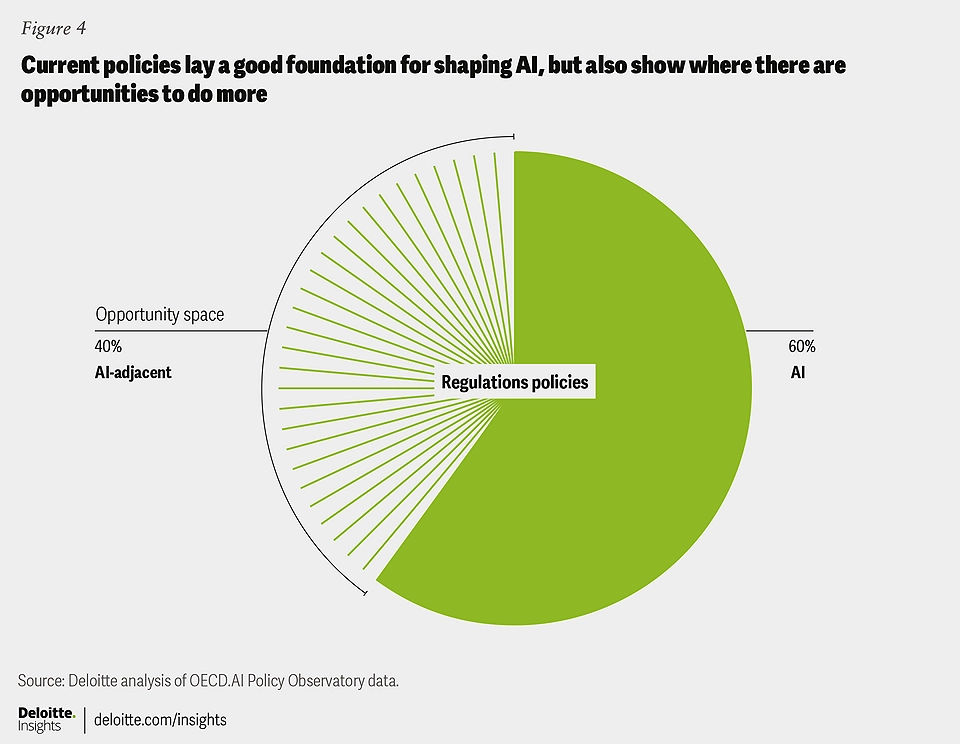Article by Deloitte: “…But our research shows that this focus may be overlooking some of the most important tools already on the books. Of the 1,600+ policies we analyzed, only 11% were focused on regulating AI-adjacent issues like data privacy, cybersecurity, intellectual property, and so on (Figure 5). Even when limiting the search to only regulations, 60% were focused directly on AI and only 40% on AI-adjacent issues (Figure 5). For example, several countries have data protection agencies with regulatory powers to help protect citizens’ data privacy. But while these agencies may not have AI or machine learning named specifically in their charters, the importance of data in training and using AI models makes them an important AI-adjacent tool.

This can be problematic because directly regulating a fast-moving technology like AI can be difficult. Take the hypothetical example of removing bias from home loan decisions. Regulators could accomplish this goal by mandating that AI should have certain types of training data to ensure that the models are representative and will not produce biased results, but such an approach can become outdated when new methods of training AI models emerge. Given the diversity of different types of AI models already in use, from recurrent neural networks to generative pretrained transformers to generative adversarial networks and more, finding a single set of rules that can deliver what the public desires both now, and in the future, may be a challenge…(More)”.